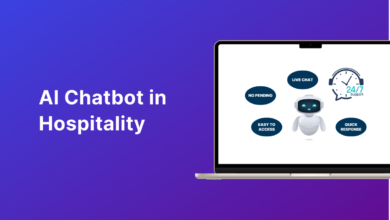Infrastructure of the Future: Chaslau Piastsiuk Tells How Europe is Building “Sovereign AI”

In 2025, Europe will actively invest in creating its own AI infrastructure to reduce dependence on American giants. For example, Nvidia announced the launch of 200 GPU centers and several “AI gigafactories” on the continent, as well as cooperation with Mistral AI, BMW, Volvo, Siemens, and Novo Nordisk.
As international financial expert Chaslau Piastsiuk emphasizes, this trend is actively supported by governments: the United Kingdom has allocated £1 billion for national computing resources, and France and Germany have announced the creation of AI hubs as part of the digital sovereignty strategy. EuroHPC experts emphasize that the new infrastructure will allow EU countries to build their own high-performance networks, reducing dependence on American cloud services. The task is not only to launch AI models but also to control data, security, and national autonomy.
AI in Business: From Automation to Generative Breakthrough
European Commission research shows that the importance of AI adoption for companies’ digital maturity is increasing dramatically: 90% of participants in digital innovation hubs improved their performance, and over a third of them did so thanks to AI-based solutions. According to Chaslau Piastsiuk, automation of routines, big data analysis, content generation, customer support via chatbots, and personalized recommendations have already become common practice in the financial, logistics, and media sectors.
In finance, Deloitte reports that the generative AI market in Europe will reach $48 billion by 2024, and more than 65% of C-suite executives plan to increase investment. This is not just true for big banks: startups are gaining access to models that were once exclusive to large corporations thanks to cloud solutions. In 2025, more and more companies will integrate AI into internal processes, from recruiting to automated auditing. CIOs also see a growing need for real AI platforms to support real-time decision-making.
London Business School expert Ekaterina Abramova adds: The European AI Act should not be seen as a barrier – rules build trust, and trust stimulates the scaling of technologies.
“AI is becoming not just a means of optimization, but the foundation of competitiveness,” comments Chaslau Piastsiuk. “Business today is built around data, scalable analytics, and personalization, and it is AI that provides this transformation. Investors are already looking not only at finances but also at the level of technological maturity.”
This growth creates demand for specialists: in 2024-2025, the number of vacancies in the field of AI in the EU increased by more than 60%. The most popular areas are data ethics, machine learning, UX design for AI solutions, and legal support for algorithms. Europe is also investing in the development of competencies: retraining of small businesses, preferential financing of digital transformation, and training of AI navigators for government agencies.
The Regulatory Challenge: Balancing Innovation and Control
According to Chaslau Piastsiuk, challenges are growing along with opportunities. In 2025, the EU entered the final stage of the “AI Act” — the first comprehensive law that classifies solutions by risk and sets standards for sensitive areas: medicine, education, justice, and security. France adopted the Paris Declaration on “inclusive and sustainable AI”, which emphasizes the transparency of algorithms and the preservation of human control.
But businesses are expressing concerns. Leaders at Airbus, Siemens, and BNP Paribas believe that excessive regulatory pressure could stifle innovation, while the US and China remain more flexible. Startups face similar risks: the costs of compliance could become prohibitive.
International think tanks, including ITIF, propose more adaptive regulatory models that take into account the scale of the company, the context of application, and the level of risk. They recommend creating a government support fund to help translate academic research into applied products. Similar models have already worked in Canada and the Netherlands.
“Regulation should not be a bureaucratic burden, but a safeguard against abuse,” emphasizes Chaslau Piastsiuk. “It is important to make progress predictable and safe, without paralyzing it.”
At the intersection of investment, technology, and legislation, the AI revolution is already gaining momentum. European states are building their own computing networks, businesses are integrating AI into everyday processes, and regulators are trying to balance public protection with innovation.
“If Europe manages to maintain the pace and strategic clarity, it will not only not fall behind but will set the global standards for digital ethics for the new century,” summarizes Chaslau Piastsiuk.


